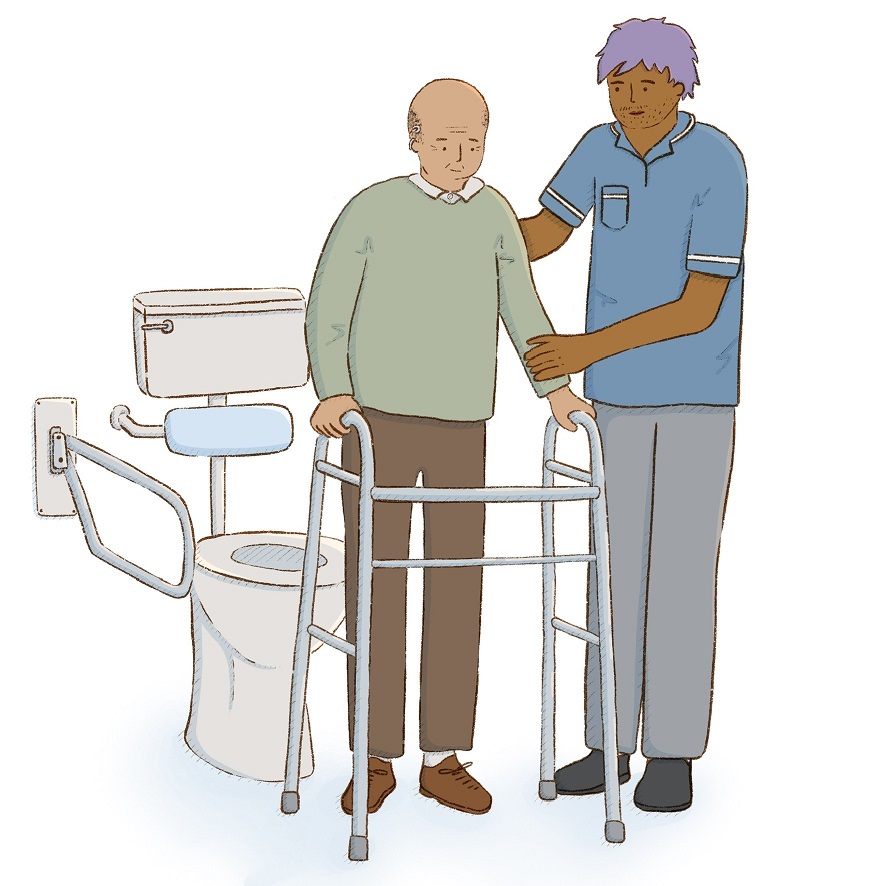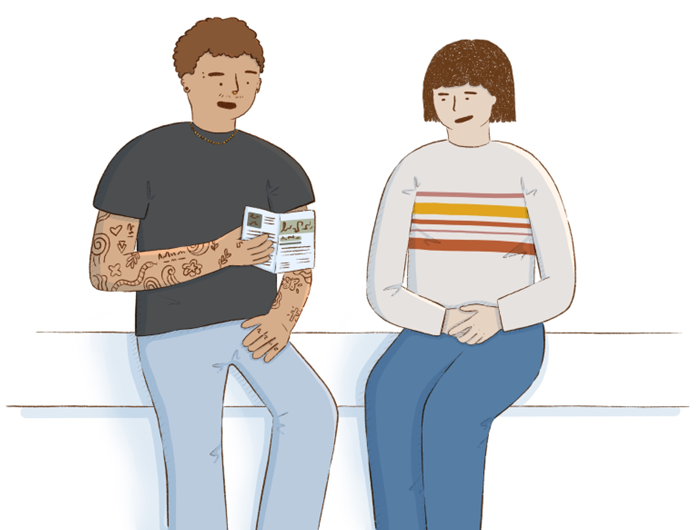The information provided on this page is available to download as a printable booklet.
People living with dementia often experience other ongoing health conditions. It is important that doctors understand that the person has dementia.
Some health problems can make people much more confused than they normally are. If you are providing care for someone it is important to be alert to common physical issues and act on them quickly.
This page covers:
Infections
Infections can be the cause of sudden increased confusion in a person with dementia. If these are recognised and treated swiftly, the person can often make a full recovery. A GP consultation is your first port of call.
Top tips for dealing with infections
- Urinary Tract Infections (UTI’s) and chest infections are common and remain the leading cause of hospital admissions for people with dementia. Look out for early warning signs and seek assessment and treatment as soon as possible.
- It may not be possible to prevent some infections, particularly if the person has a history of them. However, there are things that you can do to reduce the risk by following simple medical advice and most importantly, by seeking help immediately.
- If a person with dementia develops an infection, they are much more likely to develop delirium. There will be a sudden change in the persons level of confusion. They will fluctuate from being overactive to being very drowsy and hard to rouse. They will find it difficult to concentrate and pay attention. This is a serious complication needing immediate action.
Pain
Pain in people with dementia can go undetected and untreated, which can lead to distress. If you know the person well, you might be able to spot the signs that they are in pain. You may also know how they dealt with pain in the past. For example, some people will always take a tablet for a headache, whereas others may prefer to go for a walk.
Pain can sometimes affect a person’s selfcare. Toothache, may mean that cleaning of teeth becomes problematic. For another person, feeling pain from their osteoarthritis may make them avoid taking off their clothes as it requires a lot of movement. Some people experience transient peripheral neuropathies that can cause itching, scratching or random sharp pains.
When a person is unable to tell us directly about their pain, we have to rely on thinking about how they managed pain in the past. There are different ways to detect pain in people with dementia. You also need to be watchful for any signs and seek assessment from their GP as soon as possible.

Top tips for managing pain in dementia
- The person may not directly tell you they are in pain as they may not be able to interpret the feeling, locate where it is, or the intensity.
- You may see changes in behaviour, sleep pattern or mood.
- Indicators of pain can be more noticeable during physical tasks.
- You may notice a change in the person’s body language, and they may guard a particular part of their body when you are supporting personal care.

- They may push you away when you go to touch a part of their body.
- They may shout out or make distressing noises during movement tasks.
- They may start to become withdrawn or develop depression.
- Short term ‘treatment’ with a regular dose of paracetamol (or other non-prescription painkiller that is safe for the person to take) may help.
- Pain often becomes worse when we are bored. Try to keep the person occupied to reduce low level pain.
- Generally if the signs are there that someone may be experiencing untreated pain, a physical examination by a health care professional should be undertaken.
- Be watchful after someone has had a fall. Even if the person initially does not appear to have hurt themselves, they could be developing bruising that is slow to show or may sustain a fracture that isn’t picked up at first. Seek advice and request investigation if you have concerns.
Skin care
If the person you are supporting is spending long periods of time in one position in bed or in a chair, and particularly if they also have issues with continence, then their skin can become sore and sometimes break down into pressure sores or ulcers. These are very painful.
Top tips for keeping skin healthy
- Drinking plenty of fluids and maintaining a nutritious diet is good for the skin and general wellbeing.
- Regular cleansing, drying and moisturising can help prevent dryness and irritation.
- Some skin types are particularly prone to dryness so regular moisturising is very important.
- Encourage people to keep moving as much as they are able.
- For those who are unable to move, try to reposition the person regularly in their bed or chair.
- Pay particular attention to pressure areas such as heels, calves, thighs, hips, buttocks, elbows, shoulders, back of head and ears.

